Fight over Trump's travel ban finally goes before Supreme Court
The fight over President Donald Trump’s controversial travel ban will finally go before the Supreme Court, in a showdown over the limits of the president's power to decide who enters the United States.
Justices on Wednesday will hear a challenge to the lawfulness of Trump’s travel ban, which in its latest version targets people from Iran, Libya, Somalia, Syria and Yemen. Chad previously was on the list but Trump lifted those restrictions on April 10.
It will be the first time the Supreme Court directly confronts Trump’s immigration policy, which has been blocked by lower courts several times in the past.
Justices will consider whether the travel ban’s roots lie in anti-Muslim comments Trump made during his presidential campaign, whether he overstepped his authority under immigration laws and whether judges can second-guess the president in matters of national security.
The lead challenger is the state of Hawaii, which argues the ban violates federal immigration law and the constitutional prohibition on the government discriminating against a religion.
“Right now, the travel ban is keeping families apart. It is degrading our values by subjecting a specific set of people to be denigrated and marginalized,” Hawaii Lieutenant Governor Doug Chin said in an interview.
The high court will rule by the end of June in the case.
On December 4, the conservative-majority Supreme Court granted the Trump administration’s request to let the travel ban be fully implemented while still facing legal challenges.
Trump has argued that the travel ban is necessary to protect the country from terrorism, but critics say the order constitutes a Muslim ban in line with his campaign promise to introduce a “total and complete shutdown of Muslims entering the United States.”
In lower courts, the policy’s challengers have cited Trump’s statements, both as a candidate and president, as well as his enmity towards Muslims.
The Justice Department argues Trump’s comments as a candidate carry no weight because he was not yet president.
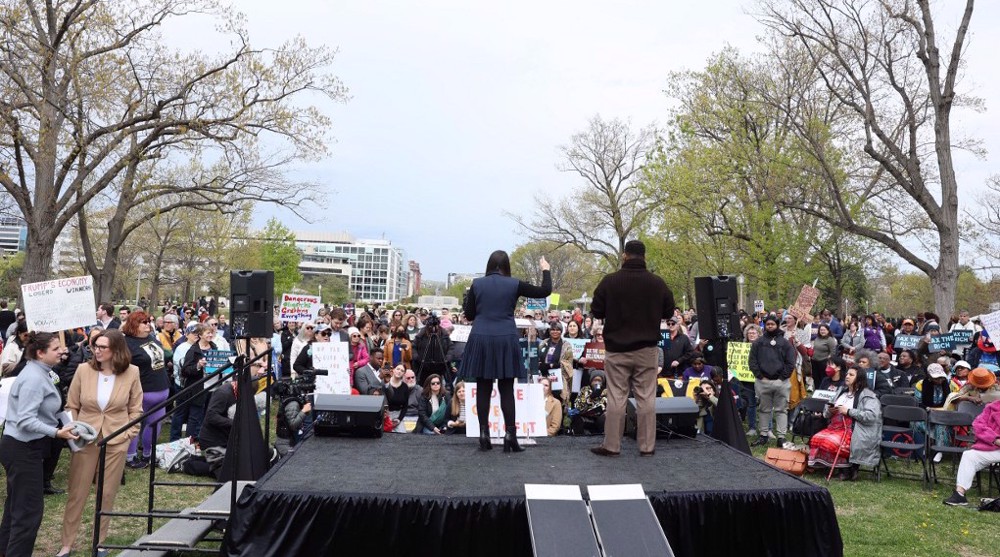
Trump policy protest erupts outside US Congress
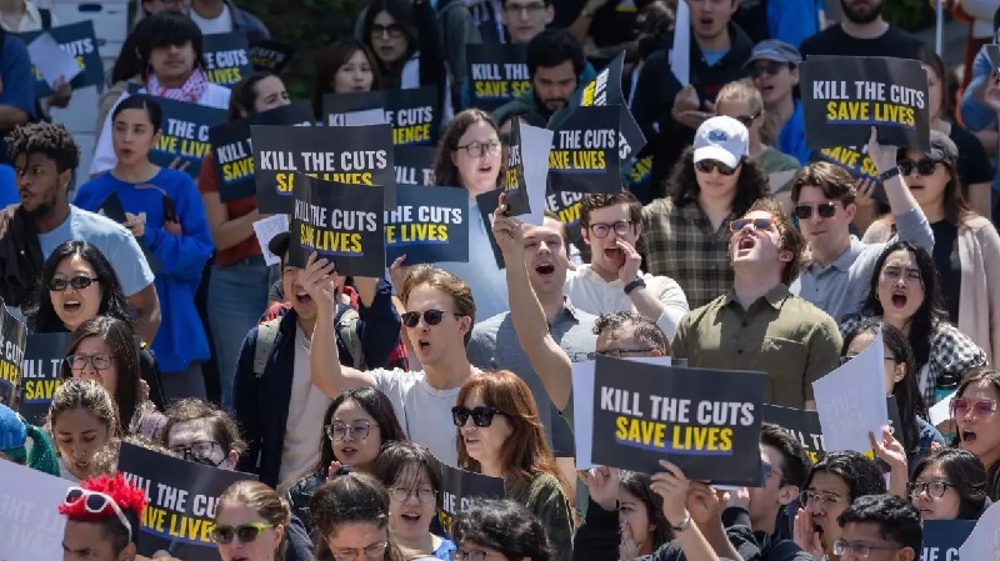
Trump decimates US healthcare
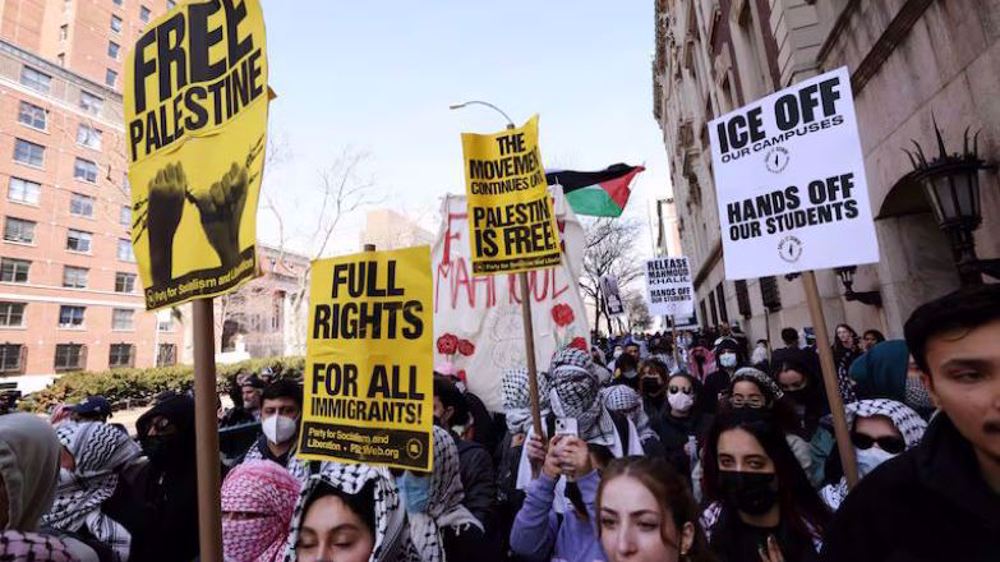
US freezes billions in university funding, revokes visas of pro-Palestine students
VIDEO | New York students protest student deportations
VIDEO | Press TV's News Headlines
VIDEO | Clashes in Amsterdam amid pro-Palestine protest against corporations' ties with Israel
Top Iranian, Omani diplomats meet ahead of indirect talks with US
Israeli guards shave Star of David on Palestinian abductee’s head before release
How Microsoft fuels Gaza genocide and silences employees who speak out
Israel organizes controversial hiking tours for settlers in occupied Syrian territory: Report
US military launches new strikes on Yemen's capital, other provinces


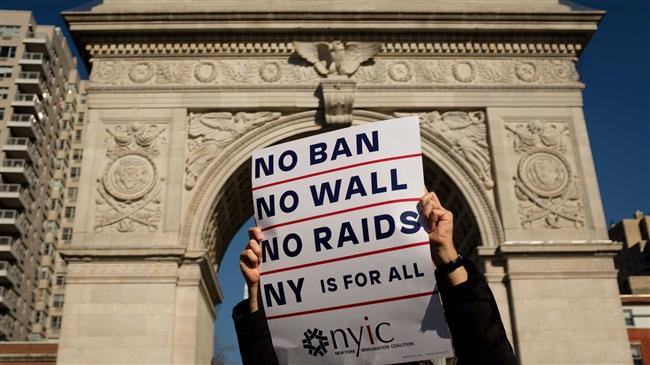






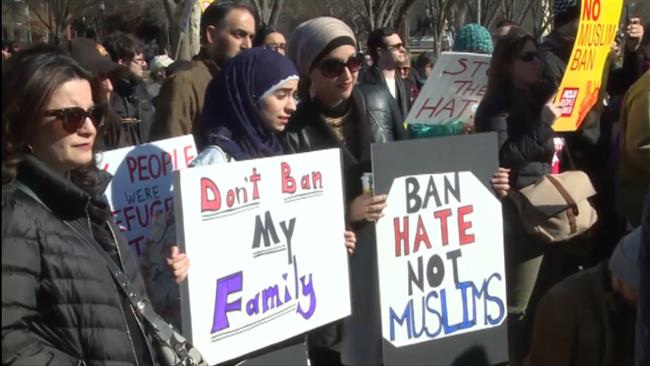
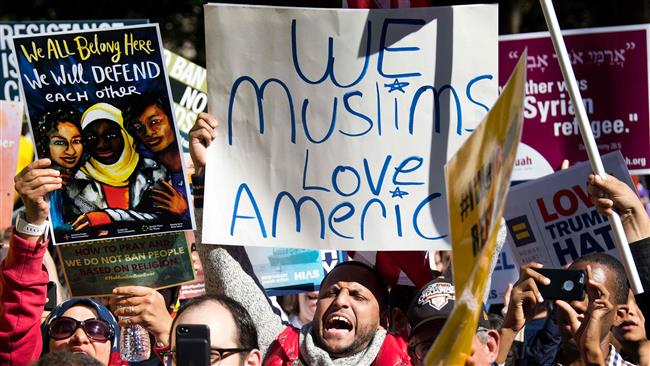



 This makes it easy to access the Press TV website
This makes it easy to access the Press TV website